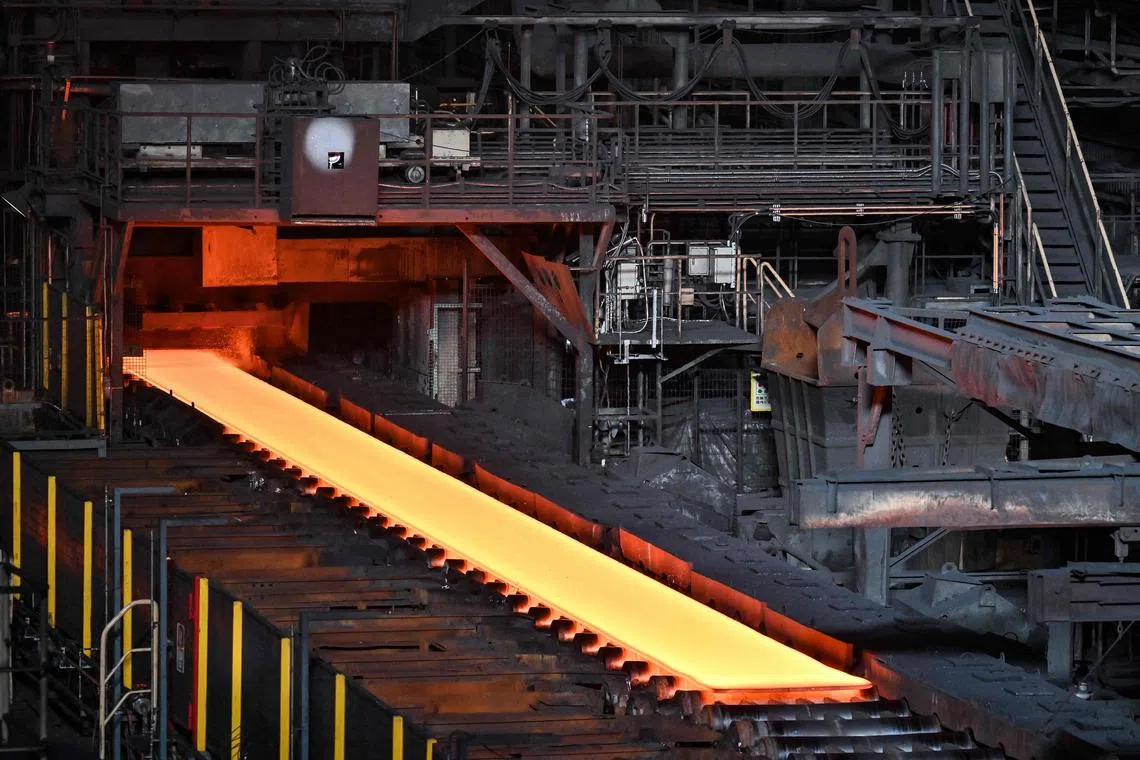US blocks Nippon Steel’s bid to purchase US Steel
Sign up now: Get ST's newsletters delivered to your inbox

The Committee on Foreign Investment in the United States had referred the decision to approve or block the deal to US President Joe Biden.
PHOTO: AFP
WASHINGTON - US President Joe Biden on Jan 3 followed through on his pledge to block Nippon Steel’s US$14.9 billion (S$20.4 billion) bid for US Steel
The move, long expected, cuts off a critical lifeline of capital for the beleaguered American icon, which has said it would have to idle key mills without the nearly US$3 billion in promised investment from the Japanese firm.
It also represents the final chapter in a high-profile national security review, led by the Committee on Foreign Investment in the United States (CFIUS), which vets investment for national security risks and had until Dec 23 to approve, extend the timeline or recommend Mr Biden block the deal.
The proposed tie-up had faced high-level opposition within the US since it was announced a year ago, with both Mr Biden and his incoming successor Donald Trump taking aim at it as they sought to woo union voters in the swing state of Pennsylvania, where US Steel is headquartered. Trump and Mr Biden both asserted the company should remain American-owned.
The two companies had sought to assuage concerns over the merger. Nippon offered to move its US headquarters to Pittsburgh, where the US steelmaker is based, and promised to honour all agreements in place between US Steel and trade union United Steelworkers (USW).
The merger appeared to be on the fast track to be blocked after the companies received an Aug 31 letter from CFIUS, seen by Reuters, arguing the deal could hurt the supply of steel needed for critical transportation, construction and agriculture projects.
But Nippon Steel countered that its investments, made by a company from an allied nation, would in fact shore up US Steel’s output, and it won a 90-day review extension. That extension gave CFIUS until after the November election to make a decision, fuelling hope among supporters that a calmer political climate could help the deal’s approval.
But hopes were shattered in December when CFIUS set the stage for Mr Biden to block it in a 29-page letter by raising allegedly unresolved national security risks, Reuters exclusively reported.
Japanese Prime Minister Shigeru Ishiba in November urged Mr Biden to approve the merger to avoid marring recent efforts to strengthen ties between the two countries, Reuters exclusively reported.
A spokesperson for Mr Ishiba could not be reached for comment on Jan 3 prior to Mr Biden’s statement. Japan is a key US ally in the Indo-Pacific, where China’s economic and military rise has raised concerns in Washington, along with threats from North Korea.
Nippon Steel had aimed to raise its global output capacity to 85 million tonnes a year from 65 million now, nearing its long-term goal of taking capacity to 100 million tonnes.
US Steel has previously said the deal’s failure would put at risk thousands of jobs, and it might be forced to close some steel mills, an assertion the USW union described as baseless threats and intimidation. REUTERS


